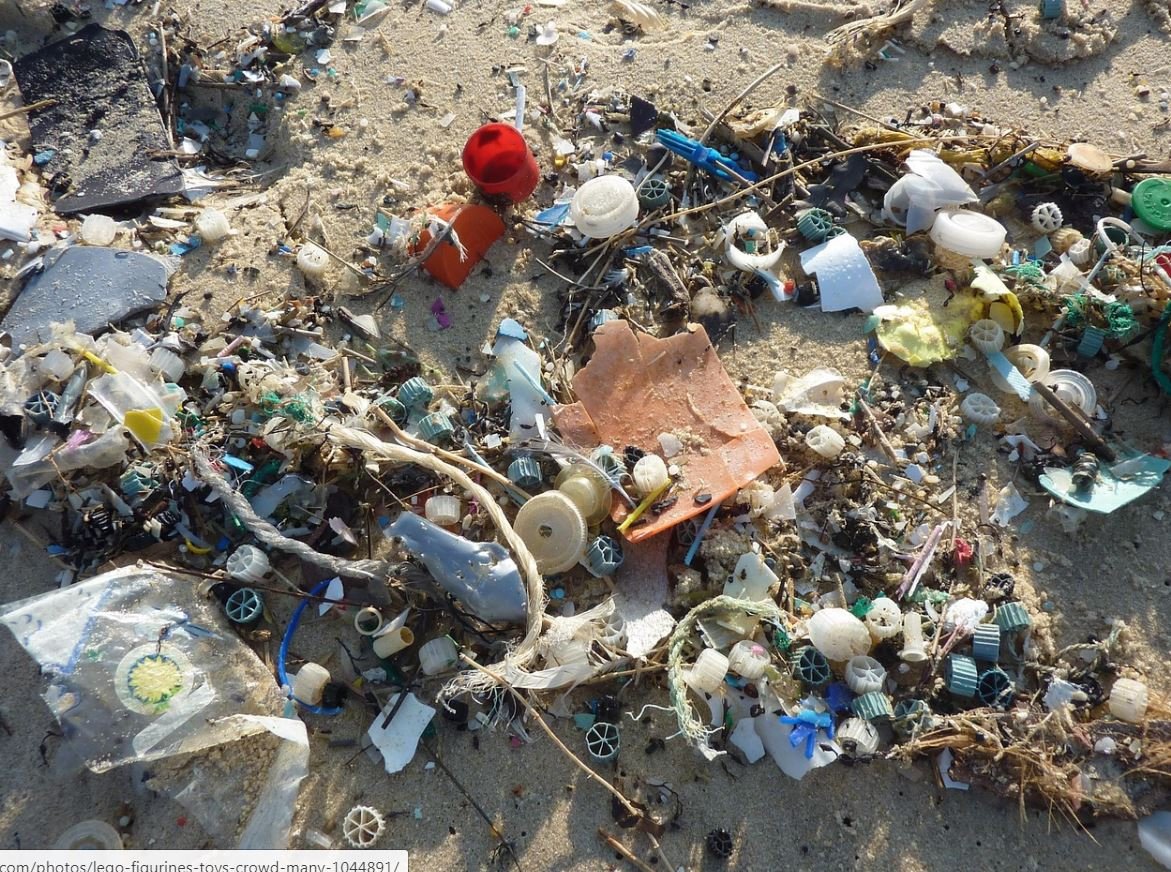Ocean Plastic Could Triple By 2040 Without ‘Rapid And Concerted’ Action

WASHINGTON – The amount of plastic entering the world’s oceans could nearly triple within the next two decades, according to a report by the Pew Research Center, a nonpartisan American think tank based in Washington, D.C., called “Breaking the Plastic Wave.”
By 2040, 29 million metric tons of plastic could be leaking into the ocean each year, piling on to the 150 million metric tons that are already there, the study found.
And because the petroleum-based product isn’t biodegradable — it needs more than 450 years to fully break down in salt water — the cumulative amount of ocean plastic is expected to reach 600 million metric tons by 2040.
For comparison’s sake, that’s roughly equivalent to the weight of 3 million blue whales.
Plastic is harmful to a wide array of wildlife, from the polar bears of the North Pole to the green sea turtles of the Galapagos Islands.
More than 800 species are affected by ocean plastic pollution, including 44% of marine birds, according to research by the United Nations Environment Program.
Plastic also destroys fragile marine ecosystems, and takes a toll on human health by ending up in our food and water. A 2017 investigation by Orb Media found that 94% of U.S. tap water was contaminated by microplastics, the highest contamination rate out of all countries studied.
Driving the massive surge in ocean plastic pollution is a steady growth of the global population, rising per capita consumption, the proliferation of non-recyclable plastics, and poor waste collection in many countries.
The Pew study, conducted in partnership with Systemiq, a company that advocates for corporate action on environmental issues, analyzed the costs and effectiveness of several different plastic-reducing strategies.
In the end, researchers concluded that only a combination of existing strategies, dubbed the “System Change Scenario”, could effectively address the massive problem that is ocean plastic pollution.
“There’s no single solution to ocean plastic pollution, but through rapid and concerted action we can break the plastic wave,” said Tom Dillon, Pew’s vice president for environment. “As this report shows, we can invest in a future of reduced waste, better health outcomes, greater job creation, and a cleaner and more resilient environment for both people and nature.”
The “System Change Scenario” involves reducing plastic consumption, substituting plastic with biodegradable materials, doubling traditional recycling, converting plastic back into fuel, and increasing basic waste collection in lower-income countries.
It was developed by experts from top institutions like the University of Oxford, the University of Leeds, and the Ellen MacArthur Foundation.
The proposed strategy would require “an unprecedented level of action” from governments and businesses around the world, and still wouldn’t entirely eliminate the problem.
But researchers say it could help cut down on 80% of the projected increase in plastic pollution, while potentially saving billions in tax dollars and corporate revenue.
Plastic pollution already has a financial impact on industries like fishing, tourism, and even global shipping. For instance, large plastic debris often gets caught up in the propellers of freight vessels, leading to shipping delays and expensive repairs.
The Pew study estimates that taking no action on plastic pollution could soon cost businesses up to $100 billion each year if governments start mandating a tax on virgin plastic, or if companies are held financially responsible for ocean clean-up operations.
Moreover, the study found that implementing the new measures could help fight climate change by reducing plastic-related greenhouse gas emissions by 25%. Research shows that burning plastic products in incinerators, one of the main ways that plastic is disposed of, releases a large amount of carbon dioxide into the atmosphere.
“Our results indicate that the plastic crisis is solvable. It took a generation to create this challenge; this report shows we can solve it in one generation,” said Martin Stuchtey, Systemiq’s founder. “‘Breaking the Plastic Wave’ leaves no viable excuse on the table; we have today all the solutions required to stem plastic flows by more than 80%. What we now need is the industry and government resolve to do so.”

























